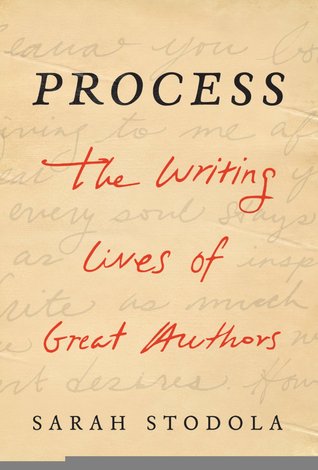More on this book
Community
Kindle Notes & Highlights
In truth, a career as a writer is enjoyable, but also lonely. Tell that to a construction worker, a nurse, a truck driver, and you will likely be mocked. But conceiving of interesting ideas and conveying them in words is intellectually, if not physically, arduous.
Habits, often bizarre, tend to propel writers forward, and it is reassuringly rare to find a writer who seems or self-describes as “normal.”
the writing process is largely unique, individual, and can sound very weird indeed.
To paraphrase Salman Rushdie, writing can be a grueling, unforgiving business, but even at its worst it’s better than having a regular job.
Genius, I have concluded, is the presence of not one ability but several that work together in tandem. Genius is far more tedious, far less romantic, far more rote, far less effortless, than we imagine it. The great writers in this book do not by and large put the right words on the right page in the right order on the first try. But in the place of perfection, they possess the quality of perseverance and a willingness to recognize their own shortcomings.
Solitude was a compulsory feature of Kafka’s writing process.
“Being alone has a power over me that never fails,” he once wrote in his diary. “My interior dissolves (for the time being only superficially) and is ready to release what lies deeper.”6 The better Kafka’s writing was going, the more isolated a person he became.
Although Kafka stuck to a careful routine in life, the hours spent writing were unpredictable. To try to control his writing was to destroy its ability to take shape. He could only work by writing impulsively.
Kafka had no problem coming up with ideas to spark a work, but it was a continual struggle for him to see those ideas through as comprehensive stories.
Kafka burned an estimated 90 percent of everything he ever wrote.
There is really nothing more to say—except why. But since why is difficult to handle, one must take refuge in how.
“There’s a line between revision and fretting, just working it to death,” she says.76
“With dialogue it’s pretty much all there, the first shot at it. I have a much more difficult time with the King’s English, you know, descriptive paragraphs. I torture them to death to get them to work.”148 The quest for perfect prose can keep Price frozen in his office for hours.
“The only thing worse than writing is not writing,” he once told the London Telegraph.
“Typically, what I’ll do is write a page, reread it, edit it, write half a page more, and then I’ll go back to the very first thing I wrote that morning . . . I don’t know whether I’m editing, reediting, or writing something new, but it’s kind of a creeping, incremental style of writing. I always sort of half-know where I’m going.”155 Some days involve more revision than others. “Sometimes all I did was fix and fiddle,” he says, “and some days I just wrote great gouts of original stuff.”156
Wharton always kept a donnée book (a French word meaning the nascent elements of a story) in which she recorded the plot outlines, little one-liners, social critiques, and clever analogies that would someday be used in one of her books.
He once claimed that writing is “a horrible, exhausting struggle,” but still he wrote unceasingly.212
For Orwell, it was most important to secure the hunk of clay first and worry about sculpting it later.
“Reading makes me intensely happy, and culminates in a fit of writing always,” she wrote in 1905, at the age of twenty-three.
“I write entirely to find out what I’m thinking, what I’m looking at, what I see and what it means,” she says in her oft-quoted lecture “Why I Write.”
Didion also maintains continuity by writing every day of the week, every week of the year. “Sometimes I don’t accomplish anything every day, but if I don’t work every day, I get depressed and get afraid to start again. So I do something every day,” she has said.
At any rate, he believed in the importance of simply getting that first draft down: “You put down the words in hot blood, like an argument, and correct them when your temper has cooled.”460
Legend has it that one day in the early twentieth century, a friend found James Joyce in despair at his desk toward the end of the afternoon. He asked Joyce how much he’d managed to write that day. Seven words, Joyce replied. That’s not so bad, said the friend, adding, for you. But Joyce’s response is the real kicker: But I don’t know what order they go in!
Díaz suffers not so much from writer’s block as from an inability to write as he wants to on demand.
“I must start out with an emotion,” he said, “one that’s close to me and that I can understand.”
Even with a couple dozen books under his belt, Roth still felt like an amateur every time he looked to the next one. “It’s a rare writer who is confident at the outset,” he said. “You are just the opposite—you are doubt-ridden, steeped in uncertainty and doubt.”
The inspiration, the moment of conception, usually comes to Atwood not as an expansive theme to be tackled, but as a single image. Or a single image that is soon joined by more images, and out of those images, “a voice starts operating, somebody starts talking, and I want to know more about him, find out about it.”
Ultimately, writing is an improvisational act, every time.
“I have no routine. I have no foolproof anything. There’s nothing foolproof.”


